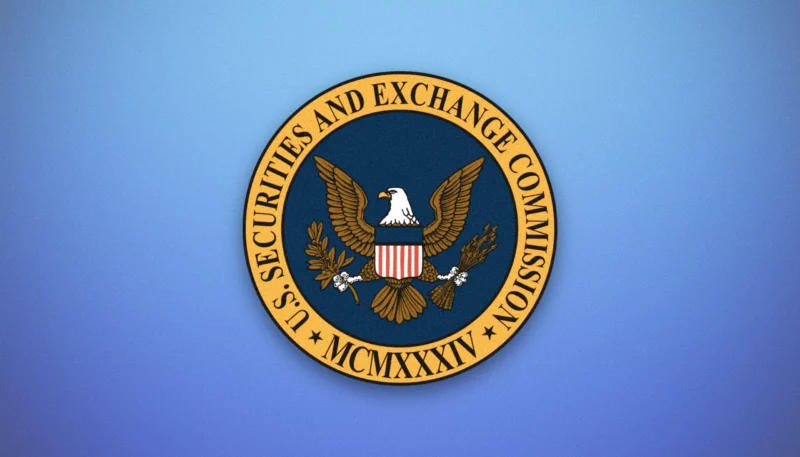Previously, I summarized the Securities and Exchange Commission’s implementing regulations of Title II of the JOBS Act, lifting the ban on general solicitation for offerings exempt under Rule 506 of Regulation D, which were finalized on July 10, 2013. At the same meeting, the SEC also finalized regulations which implement Section 926 of the Dodd-Frank Wall Street Reform and Consumer Protection Act, which requires the SEC to exclude certain felons and other “bad actors” from reliance on Rule 506.
Release No. 33-9414, entitled “Disqualification of Felons and Other ‘Bad Actors’ from Rule 506 Offerings,” is the final version of the rule and can be found here. “Bad actor” (or “bad boy”) disqualification provisions disqualify securities offerings from reliance on an exemption from registration if the issuer or other key persons (such as underwriters, placement agents, or directors, officers, or significant shareholders of the issuer) have been convicted of, or are subject to court or administrative sanctions for, securities fraud or other violations of specified laws. While such provisions can be found elsewhere in federal and state securities regulations, Rule 506 did not previously include any.
Section 926 of the Dodd-Frank Act required the SEC to implement bad actor disqualification provisions for Rule 506 offerings that are “substantially similar” to those in Rule 262 of Regulation A, and also imposed a list of additional disqualifying events. Rule 262 covers the issuer and certain other persons associated with the issuer or the offering, including issuer predecessors and affiliated issuers; directors, officers and general partners of the issuer; beneficial owners of 10% or more of any class of the issuer’s equity securities; promoters connected with the issuer; and underwriters and their directors, officers, and partners. Rule 262 disqualifying events include felony and misdemeanor convictions, injunctions and court orders, and the filing of a registration statement that is the subject of a proceeding to determine whether a stop order should be issued. The additional events specifically required by Section 926 are certain final orders issued by state securities, banking, credit union, and insurance regulators, federal banking regulators, and the National Credit Union Administration that bar certain activities or are based on violations involving certain fraudulent, manipulative, or deceptive conduct; and certain securities-related felony and misdemeanor convictions. Here is a summarized list of disqualifying acts under the final rule:
- A conviction within the previous ten years (or five years, in the case of the issuer, its predecessors and affiliated issuers), of any felony or misdemeanor in connection with the purchase or sale of any security or certain other securities law violations;
- Being subject to any injunction entered within the previous five years which enjoins the person from engaging in certain further securities law violations;
- Being subject to a final order of a state securities commission, a state banking authority, a state insurance commission, a federal banking agency, the U.S. Commodity Futures Trading Commission, or the National Credit Union Administration that (A) bars the person from (1) association with an entity regulated by such commission, authority, or agency, (2) engaging in the business of securities, insurance or banking; or (3) engaging in savings association or credit union activities; or (B) constitutes a final order based on a violation of any law or regulation that prohibits fraudulent, manipulative, or deceptive conduct entered within the previous ten years;
- Being subject to an order of the SEC that (A) suspends or revokes such person’s registration as a broker, dealer, municipal securities dealer or investment adviser; (B) places limitations on the activities, functions or operations of such person; or (C) bars such person from being associated with any entity or from participating in the offering of any penny stock;
- Being subject to any order of the SEC entered within the previous five years that, at the time of the offering, orders the person to cease and desist from committing or causing a violation or future violation of any scienter-based anti-fraud provision of the federal securities laws or the registration requirements of the Securities Act of 1933;
- Being suspended or expelled from membership in, or suspended or barred from association with a member of, a registered national securities exchange or a registered national or affiliated securities association for any act or omission to act constituting conduct inconsistent with just and equitable principles of trade;
- Having filed (as a registrant or issuer), or was named as an underwriter in, any registration statement or Regulation A offering statement filed with the Commission that, within five years before the offering, was the subject of a refusal order, stop order, or order suspending the Regulation A exemption, or is, at the time of the offering, the subject of an investigation or proceeding to determine whether a stop order or suspension order should be issued; or
- Being subject to a United States Postal Service false representation order entered within the previous five years, or is, at the time of the offering, subject to a temporary restraining order or preliminary injunction with respect to conduct alleged by the United States Postal Service to constitute mail fraud.
The rule contains a reasonable care exception, which would allow an issuer to maintain its Rule 506 exemption if it could show that it did not know and, in the exercise of reasonable care, could not have know that disqualifying event had occurred with respect to someone covered by this regulation. The rule offers no “safe harbor” to establish reasonable care, but rather states that the nature and scope of what an issuer needs to do is based on individual facts and circumstances.
The SEC originally proposed rule amendments to implement Section 926 of the Dodd-Frank Act on May 25, 2011. The proposed bad actor disqualification provisions largely tracked those of Rule 262, but differed in some respects because of new terms and concepts that have been introduced in securities regulation since Rule 262 was adopted as well as the types of companies that typically take advantage of Rule 506 as opposed to those that avail themselves of Regulation A. At the time they were proposed, both I and others had some concerns about the regulations and the impact they would have on small companies raising funds (see this post regarding my views and this post on the Angel Capital Association’s views). The disqualification provisions finally adopted are generally consistent with the 2011 proposal, with the following exceptions:
- instead of covering all officers of the issuer and any compensated solicitors of purchasers, the final rule is limited to executive officers and officers who participate in the offering;
- instead of covering beneficial owners of 10% or more of any class of the issuer’s securities, the final rule covers beneficial owners of 20% or more of the issuer’s outstanding voting equity securities, calculated on the basis of voting power;
- for private funds, the rule covers the funds’ investment managers and their principals;
- the rule includes additional disqualifying events for certain orders of the Commodity Futures Trading Commission and for SEC cease-and-desist orders arising out of scienter-based anti-fraud violations and violations of Section 5 of the Securities Act;
- the provisions will not apply if the authority issuing the relevant judgment, order, or other triggering directive or statement determines and advises the SEC that disqualification should not arise; and
- the provisions will apply only to triggering events that occur after the effective date of the amendments, however, issuers will still need to conduct the relevant background checks, because they will need to disclose any of these disqualifying events.
These changes make the rule somewhat easier to comply with, by for instance, reducing the number of shareholders or officers who could trigger a disqualification. Also, the exclusion of acts committed prior to the effectiveness of the rule will prevent the potential unfair situation where someone negotiated a civil or administrative settlement in connection with a securities case but never expected his company to be prevented from raising new capital.
Nonetheless, the central issue remains: this rule will increase costs for startups raising capital. They will be required to conduct background checks on a potentially wide group of persons associated with the issuer and will need to have their legal counsel review their structure and history to determine exactly who will need to undergo background checks. The consequences for the issuer (and its principals) of losing an exemption from securities registration are just so high, that I fear that this regulation may chill capital formation for startups. This, combined with the new proposed rules on filing Form D (which I’ll discuss soon in another post) may be a much greater setback for startups than the benefits gained from lifting the ban on general solicitation.
© 2013 Alexander J. Davie — This article is for general information only. The information presented should not be construed to be formal legal advice nor the formation of a lawyer/client relationship.




